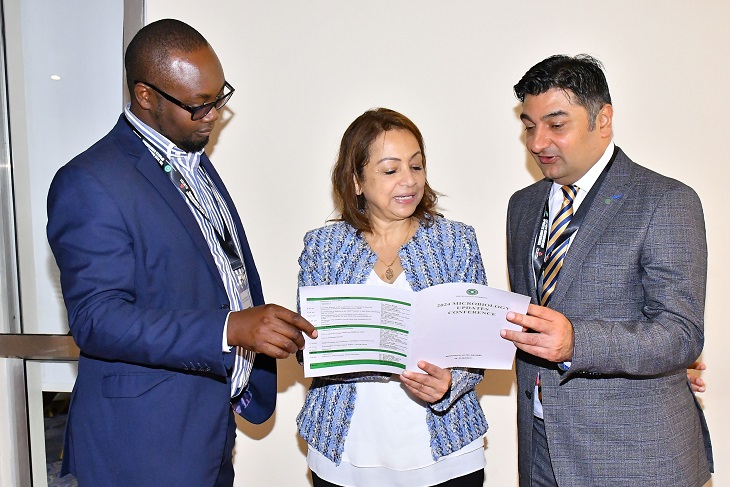The 2024 Microbiology Updates Conference organized by the Aga Khan University Medical College, East Africa, Aga Khan University Hospital, Nairobi in collaboration with the Ministry of Health brought together national and international experts to promote and strengthen One Health governance for Antimicrobial Resistance (AMR) surveillance in Kenya and the region.
The Conference aims to fill critical gaps in the surveillance of antimicrobial-resistant bacteria in low- and middle-income countries (LMICs), particularly in Sub-Saharan Africa, through various initiatives such as capacity building, research, and surveillance system strengthening to tackle AMR effectively.
Excess antimicrobial usage has been attributed to inadequate disease prevention, high infectious disease burden, availability of substandard drugs, inadequately trained and insufficient health personnel, and poor access to diagnostics and laboratory services to guide treatment.
According to the World Health Organisation, Antimicrobial resistance (AMR) is one of the top global public health and development threats. In 2019, it is estimated that bacterial AMR was directly responsible for 1.27 million global deaths and contributed to 4.95 million deaths.
In Kenya in 2019, there were 8,500 deaths attributable to AMR and 37,300 deaths associated with AMR. In addition, Kenya has the 177th highest age-standardized mortality rate per 100,000 population associated with AMR across 204 countries.
Dr Emmanuel Tanui, National AMR Focal Point, Ministry of Health said, “The Ministry of Health, through the Antimicrobial Stewardship programs, has deployed a multifaceted approach to address AMR using three pillars which include access, stewardship, research, and development. Antimicrobial stewardship programs should strike a balance between the three pillars, especially in low- and middle-income Countries. The stewardship programs ensure access to antimicrobials is not compromised and is expanded where needed.”
“The goals of antimicrobial stewardship programs at the Ministry of Health, include, improving safety, quality of care and outcomes, reducing treatment costs, reducing emergence and spread of AMR, and optimizing antibiotics lifespan,” added Dr Tanui.
The conference provides a platform for all the partners to present various challenging topics, raise many questions around AMR discuss them, and find possible solutions.
Through the Fleming Fund Country Grant, funded by the UK Department of Health and Social Care (DHSC), the Microbiology department at the Ministry of Health targets the implementation of the national AMR surveillance strategy in Kenya.
In addition, the conference aims to enhance laboratory performance, data quality, biosafety, and biosecurity while promoting clinical engagement with microbiology services. The goal is to develop a quality-assured surveillance system aligned with the World Health Organization’s Global AMR Surveillance System (GLASS).
Prof Gunturu Revathi, Section Head of Clinical Microbiology, Department of Pathology, Aga Khan University Medical College, East Africa, quoting the Lancet Commission for Diagnostics, said, “Appropriate antimicrobial prescribing requires access to proper diagnostics services and approximately 47% of the global population has little to no access to diagnostics. Diagnostics are central and fundamental to quality health care. This notion is under-recognized, leading to underfunding and inadequate resources at all levels. Importantly, recent international efforts to build lab capacity have been intensified and numerous international NGOs are conducting trainings on Anti-Microbial Stewardship.”
“As a leader in medical education, AKU faculty realize that AMR is a patient safety issue, and the laboratory and clinic interphase is an essential component of ensuring patient safety,” added Prof Gunturu.
The Microbiology Conference aims to combat AMR by bringing all the collaborating partners together for networking, actively interacting, enhancing surveillance, strengthening governance, and promoting rational antimicrobial use, thereby mitigating the human and economic burden of AMR regionally and globally.
The conference has invited teams of participants from all over Kenya including 16 health care facilities. Each facility team comprises an interdisciplinary group of clinicians, pharmacists, lab technologists, and an infection prevention and control nurse.
Related Content: Aga Khan To Start Offering Masters In Strategic Communication

